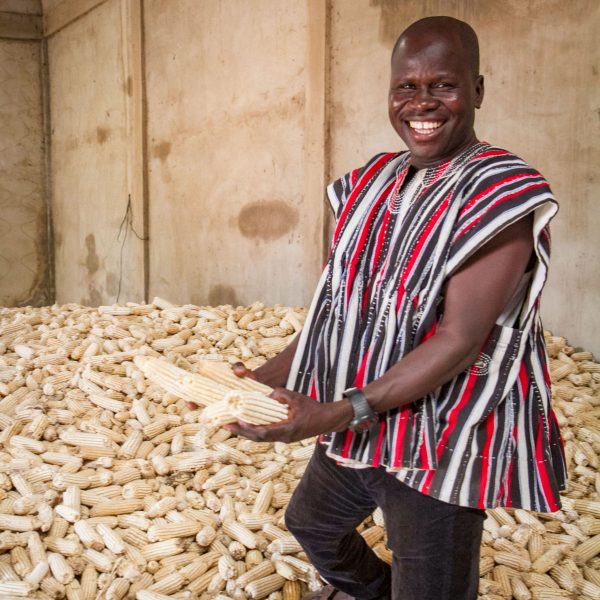Ariku Company Limited processes and markets certified seed under the Ariku Seed brand, selling through its own shop, other retailers and the Planting for Food and Jobs programme. Ariku produces seed at a 1,200-acre farm in the Upper East Region, and by contracting 3,000 out-grower farmers (of which 70% are women) across three districts, with each out-grower farming an average of 2 acres. The company also sells cereal grain to wholesale aggregators and poultry farms, and has invested in mango and cocoa production in southern Ghana. Ariku is an innovative and fast-growing company with multiple commercial partnerships. It joined the MADE programme in 2018 and reported a growth of 6,000 MT of produce in 2019.
MADE interventions
- Recruited, trained and deployed seven Farm Enterprise Advisors (FEAs) and one FEA manager.
- Strengthened a trading relationship between Ariku (supplying seed) and Simple Prince (supplying fertiliser).
- Facilitated a stronger commercial partnership between Ariku and Yelsumde, another local seed producer: Ariku provides seed processing and the two companies share resources such as tractors and FEAs.
- Facilitated linkages with extension services from the Ministry of Food and Agriculture for remote, underserved farmers.
- Provided demonstrations and training on post–harvest handling and how to store and sell produce.
Impacts
- Established a 95% crop recovery rate for Ariku and its out-growers.
- Increased the number of contracted smallholder farmers from 1,750 in 2017 to 3,000 in 2019.
- Enabled smallholder out-growers to increase the size of their farms to as much as 5 acres.
- Facilitated yield increases in the wider cereal sector through a high uptake of open-pollinated and hybrid seed varieties.
- Increased income security for smallholder farmers through support for dry-season vegetable production.
- Raised yields for smallholder farmers from an average of 7 to 15 bags (100 kg) per acre for maize, 10 to 22 bags (100 kg) per acre for rice, 3 to 10 bags (50 kg) per acre for soybean and 3 to 12 bags (100 kg) per acre for cowpea, between 2017 and 2019.

